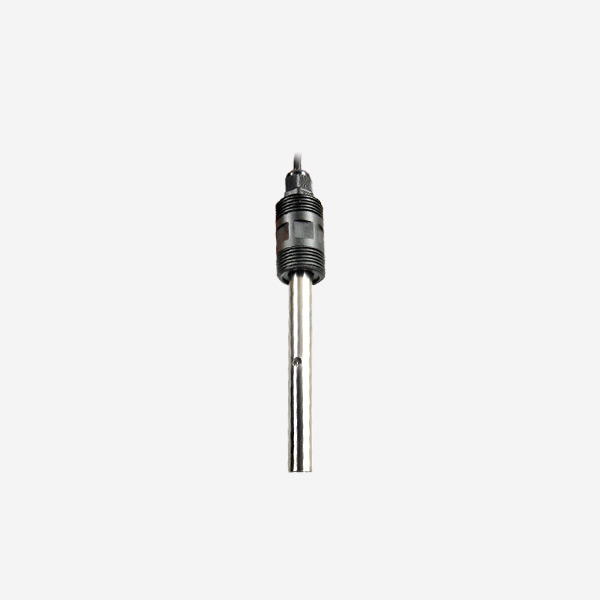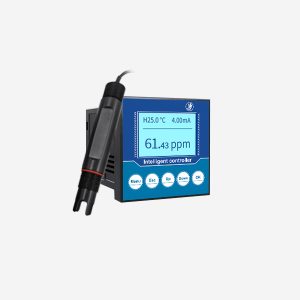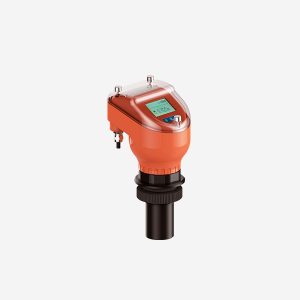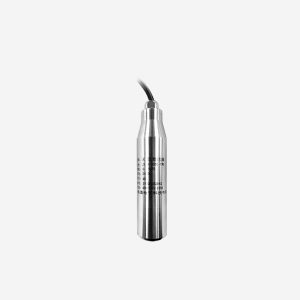Product Introduction:
Stainless steel EC conductivity sensor is one of the intelligent online chemical analysis instruments, which is widely used in the continuous monitoring of EC value or TDS value and temperature in thermal power, chemical fertilizer, metallurgy, environmental protection, pharmaceutical, biochemical, food, tap water and other solutions. The monitoring data can be connected to the recorder through the transmission output to realize remote monitoring and recording, and can also be connected to the RS485 interface through the MODBUS-RTU protocol to facilitate the computer to realize monitoring and recording. At the same time, the device has two relay interfaces, you can set the alarm point output
* Models:JXBS-3001-EC-PZ-4
* Minimum order quantity: 1 piece
* Delivery time: within 24 hours
Features:
1. Both probes can be used for a wider range of applications.
2. Multiple output modes are available: RS485, 0-5V, 0-10V, 4-20ma.
3. The sensor adopts wide voltage power supply, DC 7~30V can be used.
4. Shell IP65 protection grade, can be used in outdoor rain and snow environment.

Parameters:
Electrode selection: stainless steel electrode 1.0
Measuring range: 0-2000us/cm
DC power supply: 12-24V DC
Power consumption: ≤0.15W (@12V DC, 25℃)
Measurement accuracy: 3%F.s
Output signal: RS485
Temperature compensation: -20℃-80℃ (manual/automatic)
Response speed: ≤15s
Attention:
1. The electrode is a very precise component, and it must be installed in a correct way. Otherwise, the electrode will be damaged or irreversible. Electrodes are piped. Immersion. French installation can be.
2. Do not put the electrode directly into the water. Use the electrode mounting bracket or circulation cup to fix it. Before installation, be sure to waterproof and close the raw material belt (3/4 thread) to avoid water entering the electrode and causing short circuit of the electrode cable.
3. During the water shutdown, ensure that the electrode is immersed in the measured liquid or wear a protective cap with protective liquid inside. If the temperature is low in winter and the water is stopped for a long time, add an antifreeze device or bring back the indoor water storage. Otherwise, the service life will be shortened.


FAQs:
1. What is the conductivity of water?
Conductivity refers to the ability to conduct an electric current in a body of water. In water quality monitoring, electrical conductivity is one of the important indicators to reflect the quality of water quality. The higher the conductivity value of water, the better the conductivity, and the greater the TDS value of water. The TDS value represents the amount of dissolved impurities in the water. The higher the TDS value, the higher the impurity content in the water. Conversely, the smaller the impurity content, the higher the purity of the water, the lower the conductivity.
2. How long is the electrode life?
In normal use, the electrodes are not scratched or corroded and can be used forever. If the electrode is damaged, the measurement accuracy will be affected, and you need to replace the electrode in time.
3. What is temperature compensation and where does it come from?
Conductivity temperature compensation compensates the conductivity value at the current temperature to the conductivity value at the specified temperature (25 ° C by default). The temperature coefficient is the percentage change in the conductivity of the solution with respect to temperature, and the percentage change in the conductivity for every 1℃ increase in temperature. The default value 0.02 (2%) approximates the temperature coefficient of conductivity for a potassium chloride solution. Users can set the temperature coefficient value by themselves to make the temperature compensation more accurate. The method is to first set the temperature compensation coefficient of the device as 0, and then measure the conductivity value (g1, g2) of the same solution to be tested at two different temperatures (t1, t2).

Attachment:
Stainless Steel EC Conductivity Sensor Introduction Manual




Reviews
There are no reviews yet.